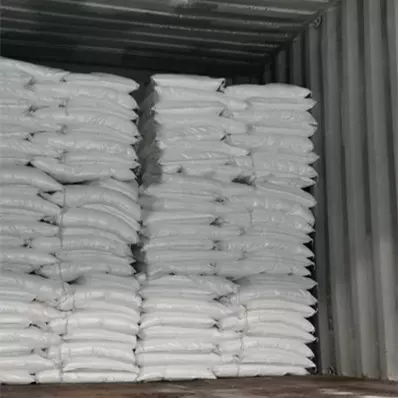Name:
Synonyms:
CAS No:
Grade:

Name:
Synonyms:
CAS No:
Grade:
Sodium Gluconate industrial grade
Sodium D-gluconate
527-07-1
Industrial Grade
Sodium gluconate (industrial grade) is a versatile, eco-friendly chemical compound commonly used in industrial applications. It is the sodium salt of gluconic acid and is known for its excellent chelating, dispersing, and corrosion-inhibiting properties. In its industrial form, sodium gluconate is typically used as a metal ion sequestrant, water treatment agent, and concrete additive.
In water treatment, sodium gluconate effectively binds to metal ions like calcium and magnesium, preventing scale formation and improving the efficiency of cleaning and descaling operations. In concrete, it is used to enhance workability, reduce water content, and improve the durability of the final product. Additionally, it finds applications in various industries such as textiles, cleaning, and oilfield chemicals, where it helps to enhance performance and reduce environmental impact.
Due to its biodegradable nature and low toxicity, sodium gluconate is a preferred choice in industrial processes that demand effective and sustainable solutions.
| Test Items | Specifications |
|---|---|
| Assay: | 98-102% |
| Heavy metals: | 5mg/kg max |
| Lead: | 1 mg/kg max |
| As | 1 mg/kg max |
| Chloride: | 0.07% max |
| Sulphate: | 0.05% max |
| Reducing substances: | 0.5% max |
| PH: | 6.5-8.5 |
| Loss on drying: | 1% max |
1. Water Treatment
Scale Prevention: Sodium gluconate is widely used in water treatment processes to prevent the formation of scale by binding with metal ions such as calcium and magnesium. It is effective in boilers, cooling systems, and water pipes, improving efficiency and extending equipment life.
Descaling: It is used for cleaning and descaling metal surfaces in industrial systems like heat exchangers and pipes, particularly in industries like power generation, manufacturing, and water desalination.
2. Concrete and Construction
Plasticizer and Superplasticizer: Sodium gluconate improves the workability and flow of concrete mixtures, allowing for a reduction in water content without compromising the strength of the concrete. It enhances the durability and performance of concrete, making it suitable for high-strength and long-lasting structures.
Corrosion Inhibitor: It helps prevent corrosion in reinforced concrete, increasing the longevity and performance of concrete structures in harsh environments.
3. Cleaning and Detergents
Chelating Agent: In cleaning formulations, sodium gluconate binds to metal ions that can interfere with detergents, improving their effectiveness and preventing water hardness buildup.
Industrial Cleaners: It is used in industrial cleaning agents, especially for removing rust, scale, and mineral deposits from metal surfaces in manufacturing and maintenance operations.
4. Textile and Dyeing Industry
Dispersing Agent: Sodium gluconate helps disperse dye particles in the textile industry, improving the color uniformity and efficiency of dyeing processes.
Water Softening: It is used in the textile industry to soften water and improve the quality of dyeing and finishing processes.
5. Oilfield Chemicals
Drilling Fluids: Sodium gluconate is used in oilfield operations, particularly in drilling fluids, to control the viscosity and improve the performance of mud systems. It helps to stabilize the mud and prevent the build-up of minerals that could clog equipment.
6. Metal Cleaning and Surface Treatment
Rust Removal: Sodium gluconate is an effective rust remover in the metal industry, helping to clean and prepare metal surfaces for painting, coating, or further processing.
Passivation of Metals: It is used to passivate metal surfaces, reducing the risk of corrosion in metals like steel and aluminum.
7. Agriculture
Soil Treatment: In agriculture, sodium gluconate is sometimes used in fertilizers or soil treatments to enhance the solubility of certain nutrients, improving their availability to plants.
8. Cosmetics and Personal Care (Specialized Applications)
Although less common, sodium gluconate (industrial grade) is occasionally used in formulations for personal care products as a stabilizer or chelating agent to improve the stability and effectiveness of other ingredients.
9. Pharmaceutical Manufacturing (Niche Applications)
In certain pharmaceutical processes, sodium gluconate is utilized as a stabilizer or excipient in formulations, particularly for its ability to bind with metal ions and improve the solubility of active ingredients.
10. Food Processing (Selective Use)
While food-grade sodium gluconate is used extensively in food applications, the industrial-grade version may occasionally be used in food processing environments for tasks such as water treatment, where food-grade certification is not required.
11. Lubricants and Oils
Corrosion Inhibitor: Sodium gluconate can be used in industrial lubricants and oils to prevent rust and corrosion, ensuring smooth operation of machinery and extending the life of mechanical components.